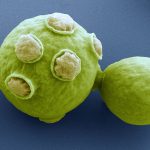
Gould quoted in Nature on synthetic organisms unable to breed with wild counterparts
Fred Gould is quoted in Nature, discussing a gene editing technique designed to make interbreeding between synthetic and wild organisms impossible. The technology, which targets gene expression, could be applied to mosquitoes to control infectious diseases, such as malaria, or to invasive species, like Asian carp. "This is an ingenious system."...
Jennifer Kuzma on Institute for Emerging Issues First in Future podcast
December 12, 2017 Dr. Jennifer Kuzma speaks with Leslie Boney, Director of the Institute for Emerging Issues (IEI) at NC State on the First in Future podcast. In this pod, Dr. Kuzma discusses gene edited...Continue reading "Jennifer Kuzma on Institute for Emerging Issues First in Future podcast"
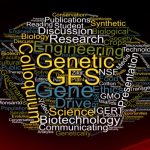
Gene Drives and Responsible Innovation
It is not often that a new technology is at once hailed as a potential solution to pandemic disease, wildlife conservation and hunger, while also being feared as a potential military and environmental “bioweapon.” Gene drives,...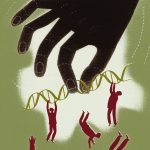
Jason Delborne addresses CRISPR gene drives controversy in NYTimes, Quanta, and Gizmodo
GES Faculty member Jason Delborne addresses two controversial new papers in several articles published this week on the safety of field testing CRISPR gene drives in the wild. With links to articles in New York Times, Quanta, Gizmodo and The Atlantic....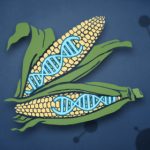
Genetic Literacy Project: USDA scraps overhaul of GMO and gene edited crop regulations that biotech advocates viewed as ‘unscientific’
“I think the real reason [for the withdrawal] is that the new proposed rule would have brought more gene-edited crops under its authority,” stated Kuzma. “And this new administration isn’t too fond of regulations in general.”...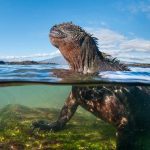
Scientific American: Could Genetic Engineering Save the Galápagos?
Campbell first became intrigued by the possibilities of gene drive in 2011, when he sat in on a conference call between biologists at NC State University and officials of the U.S. Fish and Wildlife Service to discuss a possible genetic approach to control a runaway mouse problem on Southeast Farallon Island, about 20 miles west of the California coast, near San Francisco. John Godwin, a North Carolina State neurobiologist who studies animal behavior, had learned of the Farallon issue while skimming the Internet in 2011. He happened to be at a university with an established infrastructure dedicated to experimenting with—and considering the ethical implications of—genetic manipulation....Continue reading "Scientific American: Could Genetic Engineering Save the Galápagos?"

Science: Trump’s agriculture department reverses course on biotech rules
It’s a predictable move by President Donald Trump’s White House to take another look at the policies of the previous administration, says Jennifer Kuzma, a social scientist who co-directs the Genetic Engineering and Society Center at North Carolina State University in Raleigh. “I expected them to eventually catch wind that this was something that USDA was doing, and reverse it.”...Continue reading "Science: Trump’s agriculture department reverses course on biotech rules"
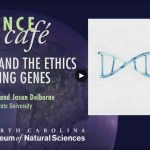
Godwin and Delborne discuss CRISPR and ethics at NC Museum of Science
GES faculty John Godwin and Jason Delborne were at the NC Museum of History on 9.28.17 discussing genetic biocontrol of pest populations, such as CRISPR gene drives to eliminate invasive rodents from islands to protect endangered seabirds. See PowerPoint presentation & livestream video (including slides)....Continue reading "Godwin and Delborne discuss CRISPR and ethics at NC Museum of Science"

Scientific American article on public acceptance of CRISPR features Delborne and Kuzma
“Without transparency, we might see a kind of hyperpolarization,” says Jason Delborne, a professor of science, policy and society at North Carolina State University. Concerned groups will feel marginalized, and advocates won't receive critical feedback needed to improve design and safety. “This puts the technology at risk of a knee-jerk moratorium at the first sign of difficulty,” he notes....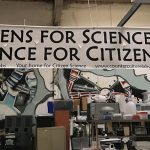
Upgrading Biosafety and Biosecurity: Open Philanthropy awards $700K for DIYbio
“For the last six years, Todd and I have been exploring the best ways to ensure the healthy growth of community labs as safe and secure resources for public education and biotech innovation,” says Grushkin. “This grant will help us codify best practices in these often unconventional spaces.”...Continue reading "Upgrading Biosafety and Biosecurity: Open Philanthropy awards $700K for DIYbio"
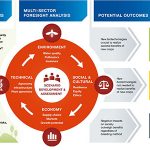
Kuzma examines benefits, regulation of gene edited crops in EMBO
In this article, published by EMBOpress, researchers look at how new genetic-engineering (GE) technologies based on gene editing can help to generate crop varieties to address critical challenges in agricultural development. However, governance systems for these crops are poorly defined and currently uncertain....Continue reading "Kuzma examines benefits, regulation of gene edited crops in EMBO"
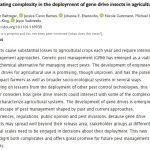
GES IGERT Students Research Deployment of Gene Drive Insects
A new paper from GES IGERT students, to be published by the Journal for Responsible Innovation, is now available online. Anticipating complexity in the deployment of gene drive insects in agriculture Jennifer Baltzegar, Jessica Cavin Barnes, Johanna E. Elsensohn, Nicole Gutzmann, Michael...Continue reading "GES IGERT Students Research Deployment of Gene Drive Insects"
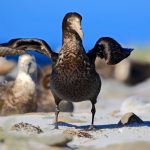
NC State Receives DARPA Funding to Develop, Test Gene Drive System
For Immediate Release August 3, 2017 John Godwin | 919.513.2936 North Carolina State University researchers have received funding from the Defense Advanced Research Projects Agency (DARPA) to develop and test a system that would reduce populations of...Continue reading "NC State Receives DARPA Funding to Develop, Test Gene Drive System"
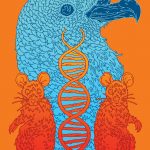
GES Co-Directors Gould and Kuzma Quoted in Audubon Story on Using Gene Drives to Save Island Birds
A new story in Audubon Magazine, How Genetically Modified Mice Could One Day Save Island Birds, features quotes from GES Co-Directors Dr. Fred Gould and Dr. Jennifer Kuzma. The article tells the story of how Dr. John Godwin, Associate Professor of Biological Sciences, and Ph.D. student Megan Serr became part of GBIRd (Genetic Biocontrol of Invasive Rodents), a global partnership working to save island birds from extinction by using the cutting-edge (and controversial) CRISPR and gene drive technologies to eradicate invasive species of mice....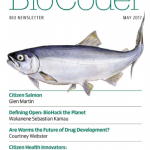
Todd Kuiken in BioCoder: Citizen Health Innovators
They say that necessity is the mother of invention. Many would argue that their greatest necessity is health. So what happens when treatments are ineffective or unavailable? Today, in the age of crowdfunding, some people are taking matters into their own hands and developing their own treatments, including surgical techniques, gene therapies and molecular therapies. GES Senior Research Scholar Dr. Todd Kuiken, together with international science policy expert Eleonore Pauwels, of The Wilson Center, explores the risks, regulatory issues, and implications of the emerging DIY, "patient-powered" health research movement in the Spring 2017 issue of BioCoder....Continue reading "Todd Kuiken in BioCoder: Citizen Health Innovators"